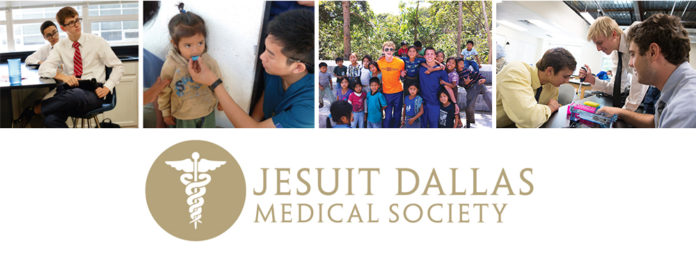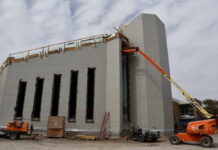Boasting 125 active participants, Jesuit Dallas College Preparatory School’s Medical Society prepares to begin this year’s round of meetings and clinical rotations. Medical Society, which is open to students of all grade levels, offers monthly meetings that zero in on skills within various medical fields. In addition, the program offers juniors the ability to participate in a clinical rotation program at Texas Health.
Students enrolled in the program shadow doctors on their monthly rotation and learn about what they do around the hospital. The program offers excellent opportunities to experience the day to day tasks of nurses, physicians, etc. These tasks prepare students for their possible occupation in the future.
Program co-director Mr. Von Schlehenried has previously stated that clinical rotations teach students how “learning…medicine is a service/vocation” and also how it provides “a chance to see what it’s all about so they can decide if it’s something they want to keep pursuing.”
Luke Wyand ’18 stated that his 2016- 2017 experience “for clinical rotations was great.” In addition he stated that “Clinical rotations let me see first hand the day to day tasks of all different medical fields. I was able to learn a lot about the medical field which I am interested in pursuing and the rotations helped me figure that out. Medical Society overall has been my favorite club at Jesuit. It has helped me grow very close to teachers like Mr. Von and has given me the chance to do a cat dissection, structure function lab, and clinical rotations.”
With a new year, the 2019 class will now be able to participate in upcoming clinical rotations. Patrick Keys ’19, an avid member of the Medical Society, said, “We have just had orientation and got our badges,” following this up by saying “we haven’t started the official rotations yet, [but] I have nothing but excitement for the experiences we are going to have.”
This newest batch of clinical rotations looks to be a very insightful experience to the students for understanding the science world as proven by the response from Marco Campioli ’19. “It’s a really interesting and unique opportunity that not only allows us to experience the medical world, but also gives us a sense of what types of medical jobs interest us for the future.” The overall experience gained from the students participating in clinical rotation will allow them to experience first hand the application of science from the classroom to the real world.
The teacher-student relationship building, the firsthand real world medical experience, and excellent scientific knowledge are just a few of the takeaways that one receives from clinical rotations. However, clinical rotations are key to the school’s students as they provide guidance for students looking towards future careers. Experiences in clinical rotations allow indecisive students to see what a head physician might do compared to a nurse, or sports science specialist versus a physical therapist, etc. They provide students a mental compass as it helps them learn which occupations they enjoy providing them hope for that career.
Make sure to stay tuned for future updates on the medical society.






